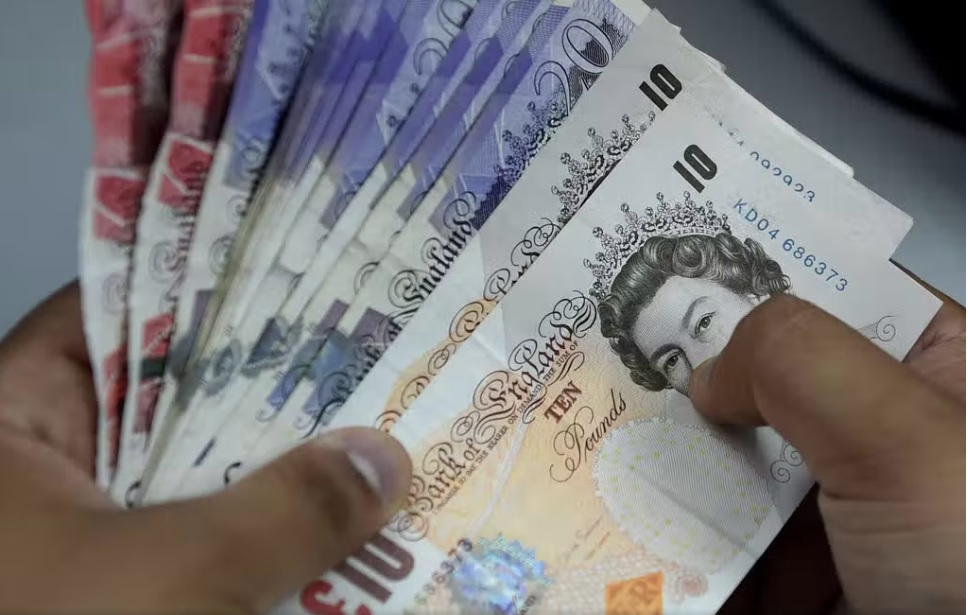Will GBP get a lot worse?
Sterling (GBP) has not had a great year so far, but it could still get a lot worse.

The pound is down by close to 5% in broad trade-weighted terms
>> Will the UK's economic downturn put GBP in jeopardy?
The pound is down by close to 5% in broad trade-weighted terms and is around 14% lower against the allconquering dollar than it was at the end of 2021. Mr. Steve Barrow, Head of Standard Bank G10 Strategy expects more weakness with the extent of the decline impacted by the direction that the new Conservative leader and PM takes the country.
By the end of this week, the identities of the two candidates who will fight for the leadership of the Party in a ballot, with the result to be announced on September 5th. It is possible that one of the two could “surrender” to the other given the Conservative Party’s apparent desire to kick Boris Johnson out of Number 10 Downing Street as soon as possible.
In this case, a new leader will be found well before September 5th. Does it matter who wins? Perhaps not, although our sense is that it could well be an important fight between the more fiscally conservative former Chancellor Sunak, and one of a number of other candidates who, for the moment, seem to be fighting over who can offer the biggest tax cuts. Mr. Steve Barrow’s view, this clamour for tax cuts derives from a number of factors.
One is the horrendous stagflationary economic backdrop the UK faces with a recession seemingly all but certain. Allied to this is the urgent need to provide cost of living support, particularly given that household energy bills will soar again in October when the price cap on what energy companies can charge, is lifted again.
A second issue is that the tax burden has risen, largely to pay for Covid-19, and this is denting the identity of the Conservatives as the low-tax party. On the surface at least, it might look as if a victory for the fiscally-conservative Sunak (assuming he is one of the two finalists) will be better for sterling as fiscal “irresponsibility” from any other candidate could make the UK’s economic difficulties even greater. This is because inflation is a huge problem and expanding demand via tax cuts would surely only add fuel to the fire. However, things are not as clear-cut as this.
>> What is the outlook for GBP in 2022?
For one thing, higher inflation is being driven by supply-side factors, not demand pull price pressure. Tax changes that focus on easing supply-side strains could aid the Bank of England’s job, not make it harder. It is a shame, therefore, that those Conservative leadership candidates opposed to the fiscal conservatism of Sunak are not going down this route but, instead, focussing on eye-catching bigger taxes like reductions in income tax or reversing planned increases in corporation tax. They also argue that tax cuts will be costed via things like spending cuts but, in many ways, this defeats the point. For if tax cuts were designed to try to dig the economy out of a very deep hole, spending cuts will just keep the economy in the dirt.
On the business side, in particular, things are interesting because many candidates pledge to unwind the planned hike in corporation tax from 19% to 25% for those with over GBP50k in profits from next April. But it is not as if the 25% rate is high; it is certainly not in international terms as the UK has been amongst the leaders in the global ‘race to the bottom’ for this particular tax.
More disconcertingly, there’s scant sign that the low tax rate that has been in place has made the UK particularly competitive. Investment has hardly surged and that seems to be partly a consequence of the high levels of uncertainty facing businesses, in large part due to Conservative actions – such as Brexit under the Johnson-led government.
With this in mind, the biggest role a new Conservative leader and PM may play in aiding the economy, or at least businesses, is through a more constructive dialogue with the EU that eases post-Brexit uncertainty, rather than tax cuts just for the sake of cuts. At the end of the day, a new leader is not going to be a game changer for the pound.
“Sterling has long since lost its political sensitivity. Instead, the pound looks set to languish in the UK’s economic mediocrity. As for what this means for sterling/dollar, we think it implies a new target range of 1.10-1.15 to replace our 1.15- 1.20 target range that has been achieved fairly recently”, said Mr. Steve Barrow.








